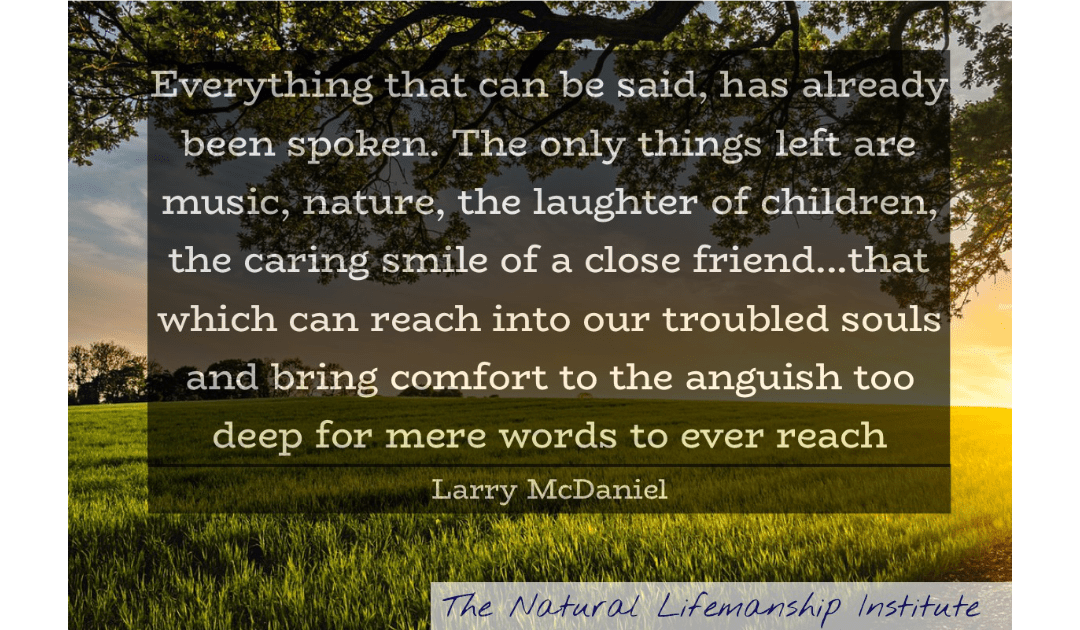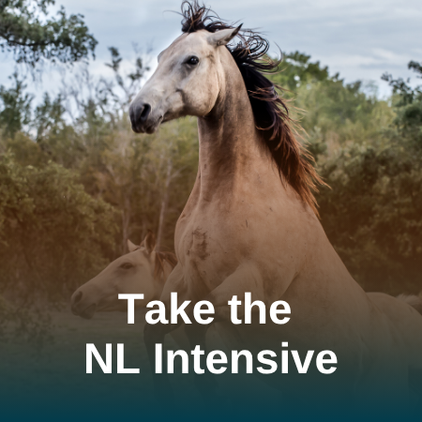By Kate Naylor and Bettina Shultz-Jobe
In times of great grief, anxiety, stress, or fear why does it seem like words are unnecessary or even hurtful? We are verbal creatures, we have a great love for language. Just take a look at the astonishing collection of great written works we have accumulated – literature, poetry, lyrics, storytelling, and more. Words have given us new ideas, new frontiers, and abilities we never could have achieved before.
And yet, there are significant moments in our lives when words are insufficient, even counterproductive. Why is that?
Although we are a highly verbal species, we are not only a verbal species. We are an embodied species as well. We need so much more than words in order to truly feel seen by others, in order to truly be seen by our own selves. Our minds are an incredible gift, and yet they would be nothing without our bodies. Our minds know things, because of our bodies. The two together are what make us human.
So how do we care for our whole selves during this pandemic, a time of collective trauma?
As Larry McDaniel, an NL certification student and executive director and founder of Coyote Hill in Missouri, so beautifully states – words can only do so much, and then there is everything else.
Our brains and bodies begin forming in the womb, cells divide in an extraordinary choreographed dance that transforms these cells into a tiny body. This tiny body continues the dance of expansion and contraction – flexion and extension – reaching out and pulling in – in order to continue the development so needed for life outside the warm waters of their mother’s womb. What does this tiny body experience as it grows? The rhythmic whoosh of flowing blood and water, the bump bump bump of a heartbeat, the changes in gravity that come with the movement of the world around them as they are suspended in liquid. This is passive sensory input – sounds and sensations that a tiny body does not produce for themself, but receives freely. This is the foundation of brain and body development we all experience in some form – for some it is rhythmic, calm and nurturing, for others it is not, and still others it is something in between. But no matter what kind of womb experience, it is where we all begin.
Built upon this foundation are the movements this tiny body produces as they grow and stretch in the womb, and after in the world. These movements continue to develop the brain. Being held, pushing up, holding oneself, reaching out, grasping an object, and coming back to self again are all a part of our development – each one of us having individual experiences along the way. Built upon these movements are the relationships and meanings and memories that are created as this tiny body becomes a relational body as well. Who loves us? Who doesn’t? What does love and caring feel like? Is the world safe? We ask these questions and grow from the answers.
This development all begins in the womb, and continues after birth and on into a child’s life. This is how it is for all of us. Only lastly, do the words and thoughts come, when we are babies and young children, and on into adulthood.
The question of why words may not be sufficient during this time is important, and also clear once you understand where we come from. Words are insufficient because we are so much more than words. We are built, piece by piece, moment by moment, into the people we are today by our environment, our bodies, our relationships, our memories…as well as our thoughts and words.
So what can we do? As Larry says, we need music, and nature, and laughter and love – we need not just words but the other rhythms our whole selves are craving as well. In a more scientific sense, we need passive regulation from rhythm in our environment – music, nature (the sights, sounds, smells, and textures), sleep, food and drink, the warmth of other living beings, and a home environment that feels as predictable and soothing as possible (whether that be through routines, rituals, fabrics, light, sounds, smells, or all of the above). We need regulation for our sensory-motor (sensorimotor) circuits – we need to move in response to that passive sensory input we are receiving all the time. We need to sway to the wind in the trees. We need to dance to the songs that stir something within us. We need to cuddle into a soft blanket and withdraw from textures we dislike. We need to walk, run, and use our balance. Quite simply, our bodies need regular movement throughout the day to feel well – indoors or out, stimulating and soothing both. We need limbic stimulation and regulation through relationships and connection – with those in our home, with those we see through a video, with those we can hear on the phone. Being seen and heard, feeling loved and cared for, and doing the same for others…is necessary.
Words are beautiful and inspiring, AND we need so much more than words to feel human.
This is why Natural Lifemanship seeks to support YOU – our students, members, and anyone else who wants to join our amazing community – with rhythm and relationship during this time. It is our desire to support you in the most primitive of ways because our developmental foundations are all the same – our bodies, minds, and souls need rhythm, movement, and relationship to heal and grow.
Join us on FB live every Sunday at 5:30 p.m. CDT to build resilience as we connect across the globe through rhythm and movement.
Join us in small groups to build resilience through meditation.
Check out the most recent ways we are offering personal (and professional) support to YOU!
Sign up for our email list to receive weekly updates about available support during these difficult and uncertain times. NL is releasing new offerings each week! Feel free to tell us what you need – we are listening!



Recent Comments